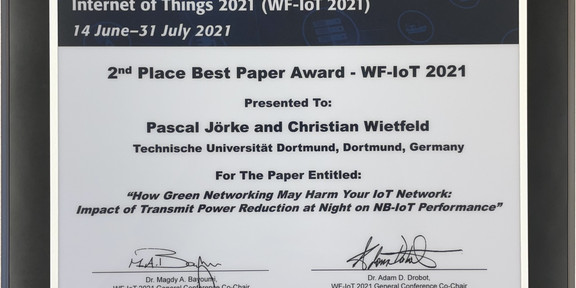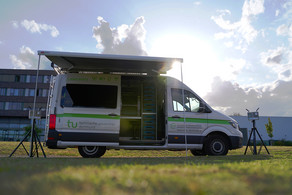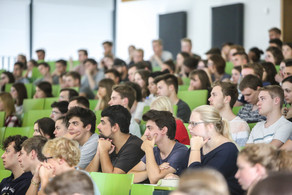P. Jörke, C. Wietfeld, "How Green Networking May Harm Your IoT Network: Impact of Transmit Power Reduction at Night on NB-IoT Performance", In 2021 IEEE 7th World Forum on Internet of Things (WF-IoT), New Orleans, USA, Juni 2021.
- Best Paper Awards

Abstract - While green networking saves energy and money on base station sites, the impact on IoT devices must also be studied. Signal strength measurements show that in NB-IoT networks base stations reduce the transmit power at night or even shut-off, forcing NB-IoT devices to switch in remaining cells with worse signal strength. Therefore, this paper analyzes the impact of downlink transmission power reduction at night on the latency, energy consumption, and battery lifetime of NB-IoT devices. For this purpose, extensive latency and energy measurements of acknowledged NB-IoT uplink data transmissions have been performed for various signal strength values. The results show that devices experience increased latency by up to a factor of 3.5 when transmitting at night, depending on signal strength. In terms of energy consumption, a single data transmission uses up to 3.2 times more energy. For a 5 Wh battery, a weak downlink signal at night reduces the device battery lifetime by up to 4 years on a single battery. Devices at the cell edge may even lose the cell connectivity and enter a high power cell search state, reducing the average battery lifetime of these devices to as low as 1 year. Therefore, transmit power reduction at night and cell shut-offs should be minimized or avoided for NB-IoT networks.





